SUMMARY
This is AI generated summarization, which may have errors. For context, always refer to the full article.
![[OPINION] Philippine government must involve civil society more in climate policymaking](https://www.rappler.com/tachyon/2022/11/civil-society-climate-policymaking-november-18-2022.jpg)
Everyone must do their part in addressing the climate crisis. This is recognized under global frameworks that govern the ongoing 2022 Unite Nations climate negotiations (COP27) in Sharm El Sheikh, Egypt.
Much of the current climate-related narratives and dialogues are framed on dichotomies: mitigation or adaptation, rich countries versus vulnerable nations, public sector and private sector.
The contributions (or lack thereof) of governments and businesses to resolving this issue has received most of the attention, given their mandates, resources, and/or capacities for implementing large-scale solutions. Yet there is a third sector that should never be ignored in climate action: civil society.
For decades, Philippine civil society organizations (CSOs) have played a vital role in advancing the green agenda. For a nation that is one of the most vulnerable to the climate crisis, the meaningful participation of CSOs that directly represent sectors like women, youth, indigenous peoples, and farmers in policymaking is a necessity, as recognized under the law.
Yet it is no secret that the inclusion of CSOs in climate policymaking, especially at the global level, has declined in recent years. The previous administration of Rodrigo Duterte saw a few high-level government officials order the distancing of agencies from climate and environment groups, including in formulating the country’s positions in recent COPs.
This is actually in violation of the terms specified under the Revised Implementing Rules and Regulations of Republic Act 9729 (Climate Change Act of 2009), as amended by RA 10174. It specifically states that “the negotiating positions of the Philippines in the international climate change negotiations shall be developed through a multi-stakeholder and inter-agency process facilitated by the [Climate Change Commission].”
If Philippine climate action is to progress such that it truly addresses the needs of current and future generations of Filipinos, inclusive policymaking is a necessity that the government is obligated to uphold.
More steps forward needed
Compared to the second half of the Duterte administration, the first few months of the new presidency have seen an improvement in terms of inclusive climate policymaking.
For the past few months, the Climate Change Commission (CCC) has held a series of meetings with CSO representatives to present the latest updates on the government’s strategies and plans at the global, national, and local levels through the leadership of Secretary Robert Borje. It has also collected inputs from sectoral representatives on their expectations under the new administration and proposals for partnerships in implementing solutions across different levels.
The appointment of Antonia Yulo-Loyzaga as the secretary of the Department of Environment and Natural Resources (DENR) was received well within the CSO circles. With her years of experience in climate resilience and disaster risk reduction working with government agencies, businesses, the academe, and CSOs, it signaled a more open climate governance in the Philippines.
Borje and Loyzaga also received the positions of CSOs regarding what should be accomplished at COP27 during a meeting on October 25, covering issues such as adaptation, mitigation, finance, and loss and damage. However, the government did not present its official positions, making this event fall short as a consultation.
Looking back, it turned out to be a sign of what we would observe at the negotiations in Sharm El Sheikh. There remains significant issues regarding the COP27 government delegation and its relationship with CSOs.
One, Loyzaga (who was head of the delegation) and Borje had to leave the negotiations to attend the national budget hearings in the Philippine Congress. While this is obviously understandable and their physical absence can be compensated through online modes of communication, this makes the nation’s positioning look optically weaker within a negotiating environment that requires strong, decisive leadership and direction.
Two, this optics issue was further highlighted by Senator Loren Legarda’s public statement for CCC Commissioners Rachel Herrera and Albert dela Cruz to return to the Philippines in the middle of the negotiations, claiming that they are not negotiators. This indicates significant gaps in coordination within the government sector on representation to COPs and the need for more capacity-building for future negotiations.
Three, many of the official positions our negotiators are carrying at COP27 remained unclear to Filipino observers until halfway through the negotiations, and not without persistence from said sector. This points to the need for the government to enhance its transparency on its positions and actions, similar to what it is demanding developed nations to do.
We however recognize that members of the government delegation have certainly been more open to engaging in informal dialogues and attending meetings organized by Filipino civil society delegates, compared to the 2021 team. The work that has been done by Filipino negotiators should be commended as well for making a huge impact on specific issues at COP27, including on loss and damage.
Steps are certainly being taken in the right direction, yet more steps forward still need to be made.
Contrary to the perception of many, civil society is willing to provide support to the Philippine government, with the shared goal of climate action that makes our nation attain sustainable development. We live in the same country and are working for a common future that all Filipinos deserve.
Yet unity cannot just be a one-way street. We expect to see more inclusive climate policymaking from our government moving forward. There is no more ignoring this, much like there is no more ignoring our responsibility to address the climate crisis. – Rappler.com
John Leo is the deputy executive director for programs and campaigns of Living Laudato Si’ Philippines and a member of the interim secretariat of Aksyon Klima Pilipinas. He is a Filipino civil society delegate and speaker at COP27 in Sharm El Sheikh, Egypt, and a member of the Youth Advisory Group for Environmental and Climate Justice under the UNDP in Asia and the Pacific.
Add a comment
How does this make you feel?

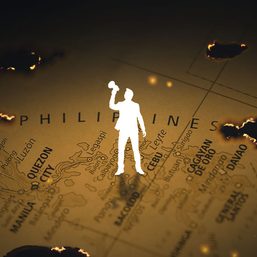
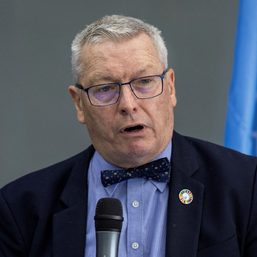
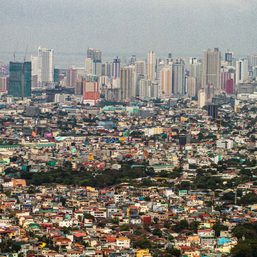
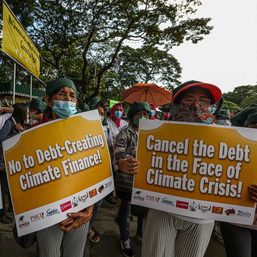
![[PODCAST] The Green Report: Post-COP27 – Where do we go from here?](https://www.rappler.com/tachyon/2022/12/gr-ep10.jpg?resize=257%2C257&crop=421px%2C0px%2C1080px%2C1080px)
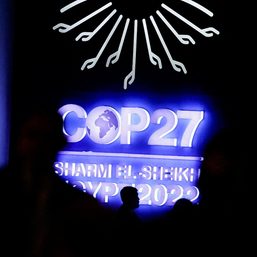
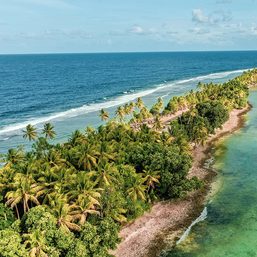
![[OPINION] How COP27 impacts the Philippines](https://www.rappler.com/tachyon/2022/11/climate-action-COP27-philippines-November-23-2022.jpg?resize=257%2C257&crop=214px%2C0px%2C900px%2C900px)
![[OPINION] Reflections from the hope spot: The indifference of COP27](https://www.rappler.com/tachyon/2022/11/ispeak-cop27.jpg?resize=257%2C257&crop=190px%2C0px%2C900px%2C900px)




There are no comments yet. Add your comment to start the conversation.